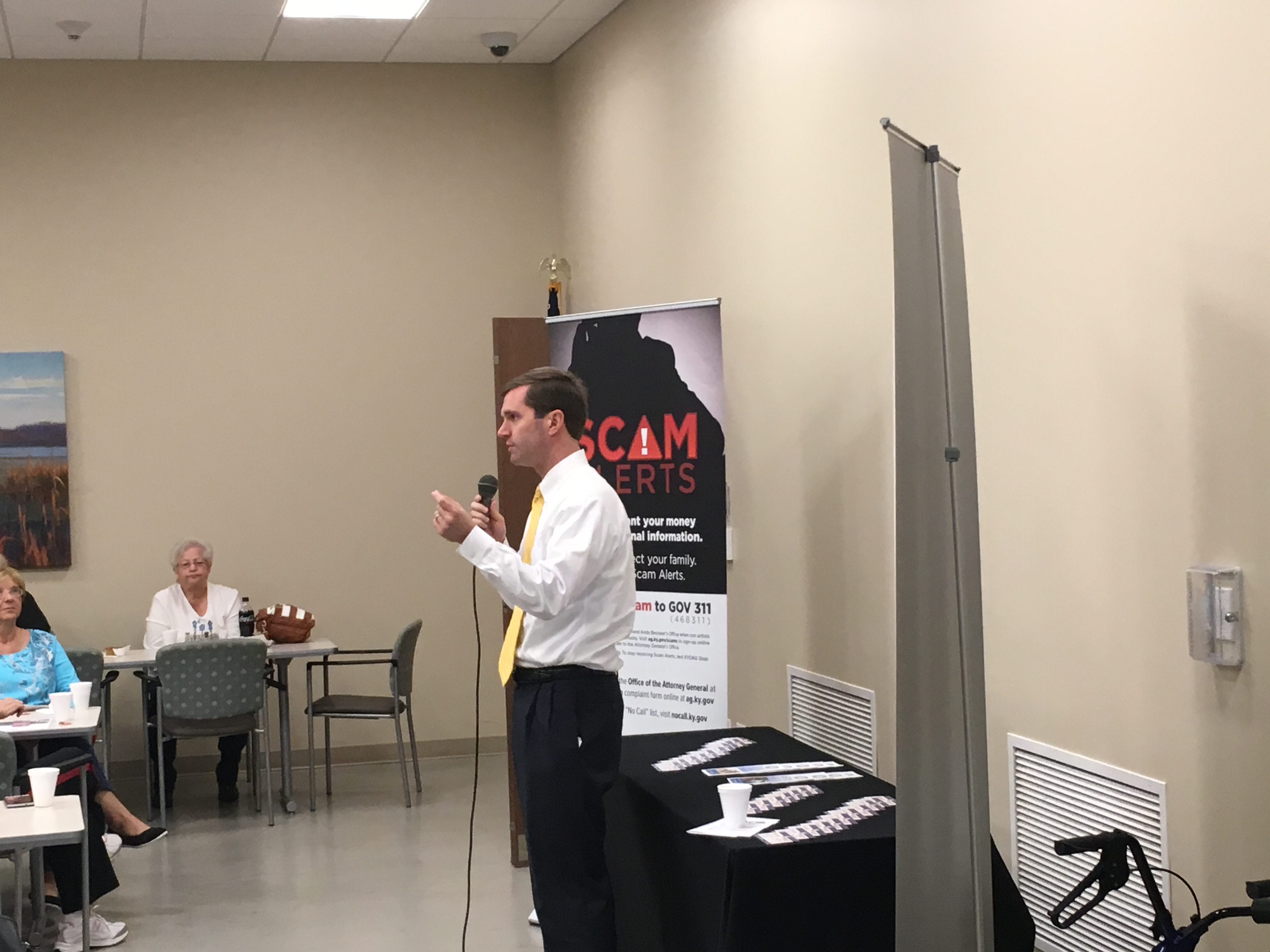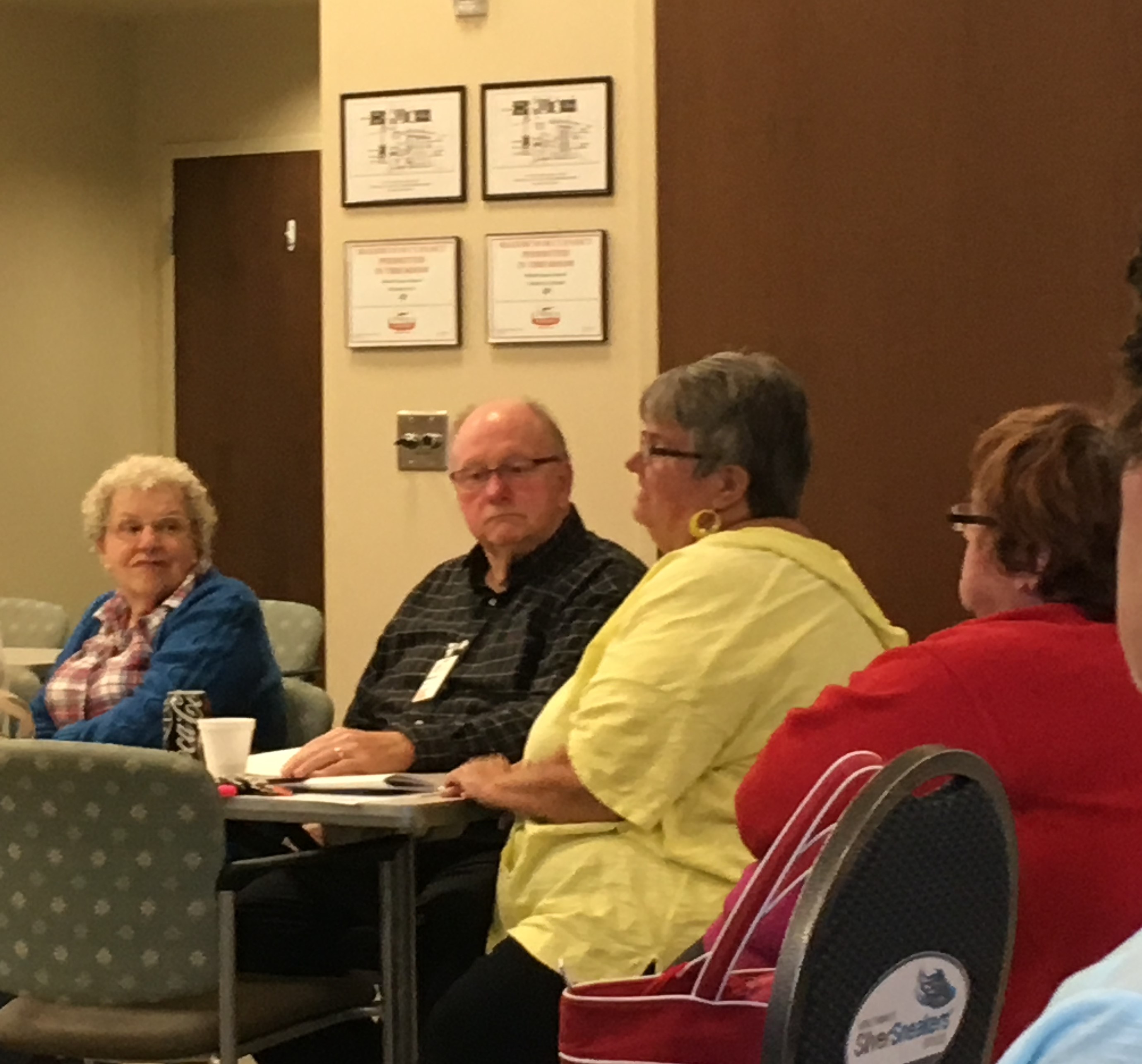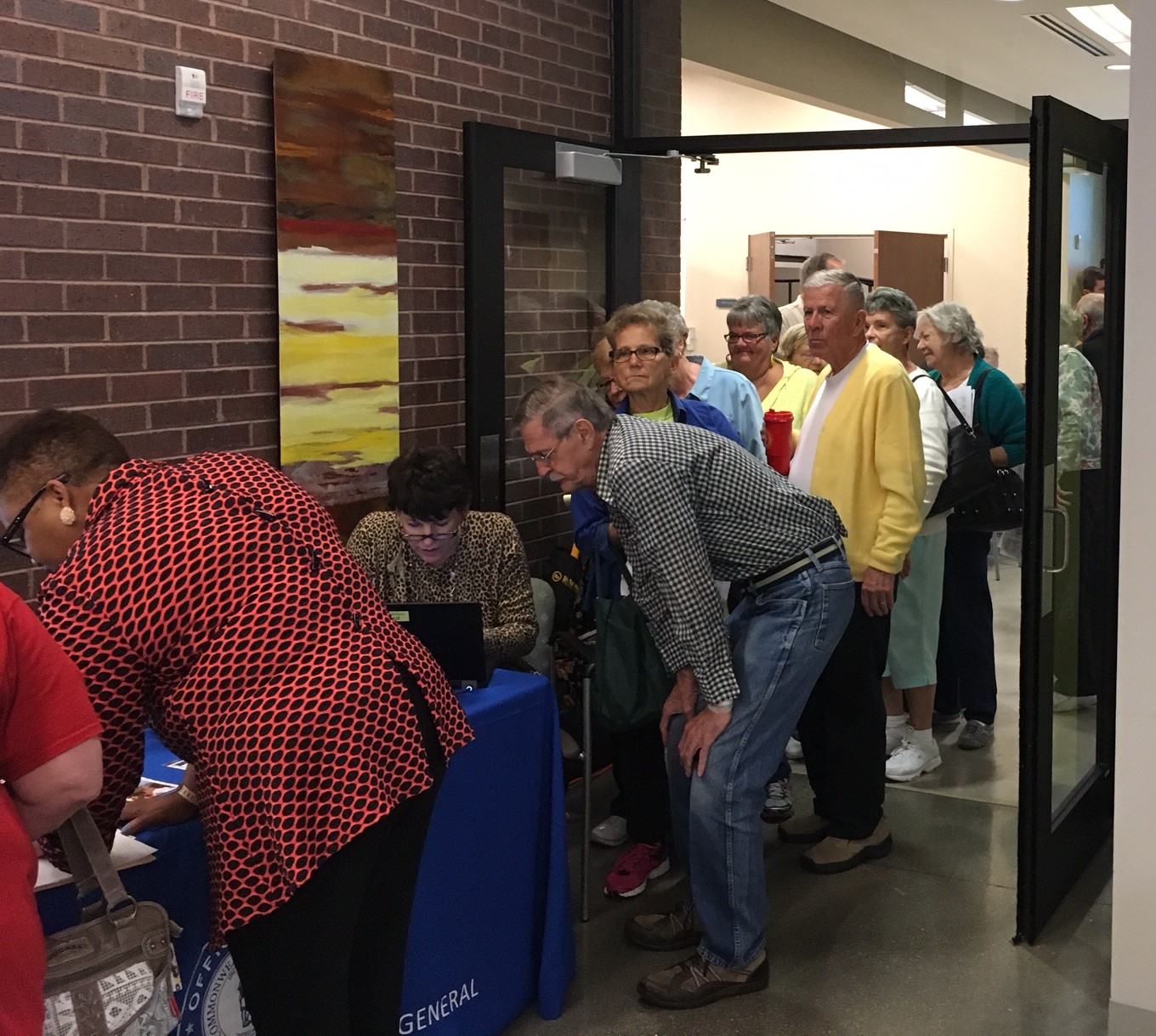By Mark Hansel
NkyTribune managing editor
Kentucky Attorney General Andy Beshear was in Florence Thursday, warning some of the region’s most vulnerable citizens to be on the lookout for people trying to take advantage of them.

Beshear spoke to a group at the Florence Senior Center about Scam Alerts, a messaging program designed to warn seniors when con artists are on the attack.
“Scam Alerts is a transformational tool where, for the first time, we can get information directly to you, so we can make sure your friends and family don’t fall for these (scams),” Beshear said.
Consumer Reports estimates that last year, more than $3 billion was stolen from seniors in scams, nationwide. In the broader category of elder financial abuse, which can include fraudulent acts by family members and others, the number jumps to $37 billion.
“Folks, this is a criminal enterprise,” Beshear said. “I know the calls come fast and furious and they change every week.”
He talked about the IRS scam, which can include a live voice or a recording, claiming the person being called owes money to the Internal Revenue Service.

The deputy sheriff scam, which involves a call from someone claiming there is an active warrant that can be resolved by making a credit card or cash card payment, struck a nerve with one local law enforcement official.
Kenton County Sheriff Chuck Korzenborn, who was on hand to support program, said his office was victimized by a con artist using the ruse.
“My chief deputy was used in this scam,” Korzenborn said. “A guy in prison got a hold of a list of warrant holders, called people that had outstanding warrants, made a deal with them where they could send him money and used my chief deputy’s name. They are well informed.”
Beshear called this one of the most offensive scams because it victimizes not only the target, but the law enforcement agency as well, since the con artist is using real names.
Scammers will also often play on the good nature of people, indicating a friend or relative is in a jam and needs money to get out of trouble. Beshear said if there is ever a question concerning the validity of a call, people should call local law enforcement or the Attorney General’s office for confirmation.
This not only ensures the validity of a request, but alerts the proper agencies to potential scams and scammers.
The Attorney General’s Office provides this list of Top Tips to Avoid Scams:
Hang up. If someone calls asking for money or personal information, hang up. If you think the caller might be telling the truth, call back to a number you know is genuine. And, avoid robocalls by registering your number on Kentucky’s No Call list.
Do not pay in advance. Scammers often offer prizes or threaten to take action against you, if you don’t pay a fee or provide your personal information. Legitimate businesses and government agencies will not threaten you for upfront payments.
Do not wire money or send reloadable credit/ gift cards to people you do not know. Legitimate businesses and government agencies will not require you to use these payment methods. It is almost impossible to get your money back after it has been wired, through services like Western Union. Reloadable cards like MoneyPak, Reloadit or other types of gift cards like i-tunes present the same problem.
Slow down. Con artists prey on fear and want to scare you in to taking action very quickly. Before you issue payment or provide your personal information, verify the business by researching it online – verify their website, contact information, search for customer reviews and company policies.
If it sounds too good to be true, it probably is. If someone is offering you something for free or a prize you never registered to win, it is more than likely a scam.
Beshear said one reason he is going across the state to taalk about the cons is to learn about new scams, so he can share that information on the Scam Alert line.

That happened Thursday, as Debbie Knipfer, a senior from Florence, revealed a scam involving PayPal, in which she was the intended victim.
Knipfer said she didn’t fall for the ruse, and was glad she could share it so others could be alerted. She said she also learned a few things.
“It was very informative and helpful,” she said. “The biggest thing I learned was not to answer my phone if I don’t recognize the number.”
Beshear pointed out that scammers calling from anywhere can make it appear that the number is coming from a local area code. Potential victims who recognize the 859, or other local area code, might answer a call they would otherwise ignore.
Once scammer have them on the line, the chance to play on insecurities and fears greatly increases the opportunity to perpetuate a successful con.
Beshear also talked about changes the Attorney General’s Office has implemented to the state’s Elder Abuse Hotline.
Beshear said, when he took office, the hotline only operated from 9 a.m. to 5 p.m. Monday through Friday. Beshear was informed that if a call came in after 5 p.m. on a weekday a response came the next day and if it was on a Friday, there was no follow-up until the following Monday.
Beshear said he found that unacceptable.
“I’m proud to say, within a couple of weeks of being in office, with the commitment of everyone in our office, the Elder Abuse Hotline is now 24 hours, seven days a week,” Beshear said. If anyone calls, they will talk to a live person in our office that can help.”
To sign up for Scam Alerts, text KYOAG Scam to GOV 311 (468311). For instructions on how to send a text message, or to sign up for Scam Alerts using a mobile phone number or email address, click here .
Contact Mark Hansel at mark.hansel@nkytrib.com

















